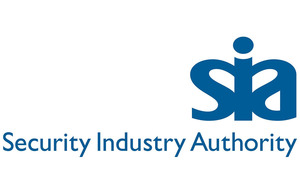Pembrokeshire man prosecuted for working without a licence
Paul Haywood Dowson was sentenced on Tuesday 12 September at Haverfordwest Magistrates’ Court.

On Tuesday 12 September Paul Haywood Dowson was sentenced for working illegally as a door supervisor at a licensed premises in South Wales. He received a 12-month Community Rehabilitation Order with 10 days Rehabilitation Activity Requirement (RAR), a fine of £500, and a Victim Surcharge of £114.00 contribution to prosecution costs of £2,587.50
Dowson worked as a security operative at a licensed premises in Tenby between November 2021 and June 2022. Dyfed Powys Police officers and a licensing officer observed him working as a door supervisor at the premises on 30 April 2022, 29 May 2022 and 04 June 2022.
On each occasion Paul Dowson was observed carrying out the duties of a door supervisor at the door of the premises. He was dressed predominantly in black, displaying an armband licence card holder and a coat bearing the text ‘security’ displayed on it. When he was seen on 29 May 2022, police officers spoke to him, and he confirmed to them that he was working at the premises.
He had held two previous door supervisor licences, but his last licence had expired on 18 March 2022. Paul Dowson continued working at the premises until the Designated Premises Supervisor became aware that he was no longer licensed in June 2022. His employment was subsequently terminated.
Paul Dowson was formally interviewed on 29 October 2022 by the Security Industry Authority (SIA). He agreed that he was standing outside of the door of the premises as described by the police officers but maintained that he was not engaged as a door supervisor at the premises.
He suggested that he was working at the premises in a non-designated role only, in relation to CCTV installations, but this claim was refuted by the premises management.
The bench stated at the sentencing:
This matter was a significant issue as a door supervisor is a person with (responsibility for) the well-being, regulation, and control of members of the public, you knew you did not have a valid licence but carried on over a sustained period until stopped. That shows a disregard for the law and for those you were meant to be protecting.
Mark Chapman, one of the SIA’s Criminal Investigations Managers said:
Paul Dowson’s case is an example of what happens when individuals choose to work when not licensed to do so. Dowson continued to work without a licence, putting the security of the venue’s patrons and staff at risk. As a result, he now has a conviction with substantial costs to pay.
“I’d like to acknowledge the contribution made to the investigation by our law enforcement partner, Dyfed Powys Police. They were exemplary in supporting the SIA to bring this case to court. This and other similar cases in the region have further strengthened the regulated security industry by ensuring that those providing security to the public are licensed to do so”.
Notes to Editors:
By law, security operatives working under contract must hold and display a valid SIA licence. Information about SIA enforcement and penalties can be found on GOV.UK/SIA.
The offences relating to the Private Security Industry Act (2001) that are mentioned above are as follows:
- 2x Section 3 - engaging in licensable conduct without a licence
Further information:
The SIA is the organisation responsible for regulating the private security industry in the UK, reporting to the Home Secretary under the terms of the Private Security Industry Act 2001. The SIA’s main duties are: the compulsory licensing of individuals undertaking designated activities; and managing the voluntary Approved Contractor Scheme (ACS).
For further information about the SIA or to sign up for email updates visit: www.gov.uk/sia. The SIA is also on LinkedIn, Facebook (Security Industry Authority) and Twitter (@SIAuk).